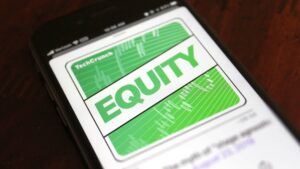Inc42 brings you a curated list of 30 early-stage startups set up after 2018 that are disrupting the way businesses used to operate
In our 17th edition, we have taken a deep dive into the world of early-stage D2C startups, changing the traditional market dynamics across sectors
We have listed 8 startups operating in the personal care segment, 8 in the food and beverage category and 4 startups specialising in the nutraceutical space. Plus, there are a few startups that work as D2C enablers, offering them a platform to be seen, heard and discovered
The second wave of the Covid-19 pandemic recently swept through the country, once again bringing traditional retail to a standstill due to stringent lockdowns required to contain the virus. But this time around, it created a massive opportunity for online retailers of all kinds, especially those that have adopted the agile and capital-light direct-to-consumer (D2C) model. In essence, the Indian startup ecosystem did prepare well during and after the first Corona shock wave. And the second wave saw the new generation of digital-first D2C businesses take command, grow online and even make successful pivots when required.
Now in the 17th edition of our much-loved series, we have curated a plethora of D2C startups that have tapped into niche consumer preferences and created value-added brands with which users can quickly identify. In other words, the brand narratives are changing. Not so long ago, 99% of the Indian population boasted of a personal care regime comprising brands like Parachute, Medimix/Lifebuoy, Clinic Plus/Sunsilk, Ponds and Vaseline. For decades, these brands offered standard quality products with single-digit SKUs or stock-keeping units. (Apart from their operational usage, these product codes can help track the most significant profit generators.)
But in the past five years, many brands have massively expanded their in-demand SKUs, with online-only offerings emerging as a mainstay for the businesses. The companies’ interest in online-first brands has been primarily driven by increasing competition and the market share of top-spending consumers who seem to embrace D2C brands instead of sticking to traditional market leaders.
As mentioned in the Inc42 Plus’ India’s D2C Market Opportunity report, FMCG giants such as Johnson & Johnson, Himalaya, Hindustan Unilever, ITC, Lakme and others, which have dominated the Indian market for decades, are now challenged by young startups like Mamaearth, The Moms Co., Bey Bee, Azah, Nua among others. Interestingly, popular beauty brands such as Revlon and Lotus took around 20 years to reach the INR 100 Cr revenue mark. But new-age brands like Mamaearth and Sugar took four and eight years, respectively, to cross the same milestone. This speaks volumes about the effectiveness of the D2C model in a digitally prone new economy and helps us understand why and how these disruptors are winning the trust of new-age consumers.

![You are currently viewing The Startups That Caught Our Eye [D2C Edition]](https://blog.digitalsevaa.com/wp-content/uploads/2021/07/Social_30startups_1200x628.jpg)









